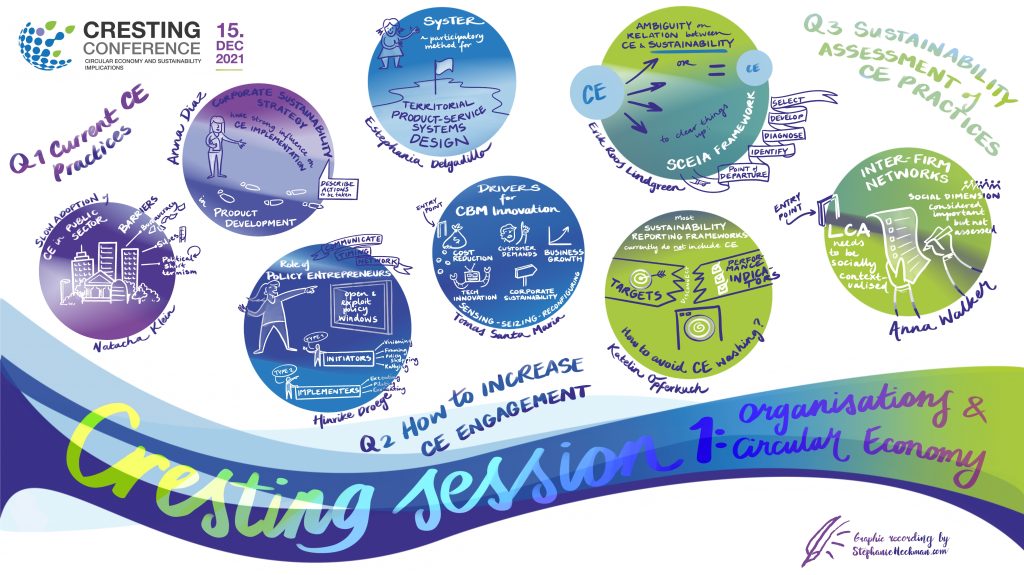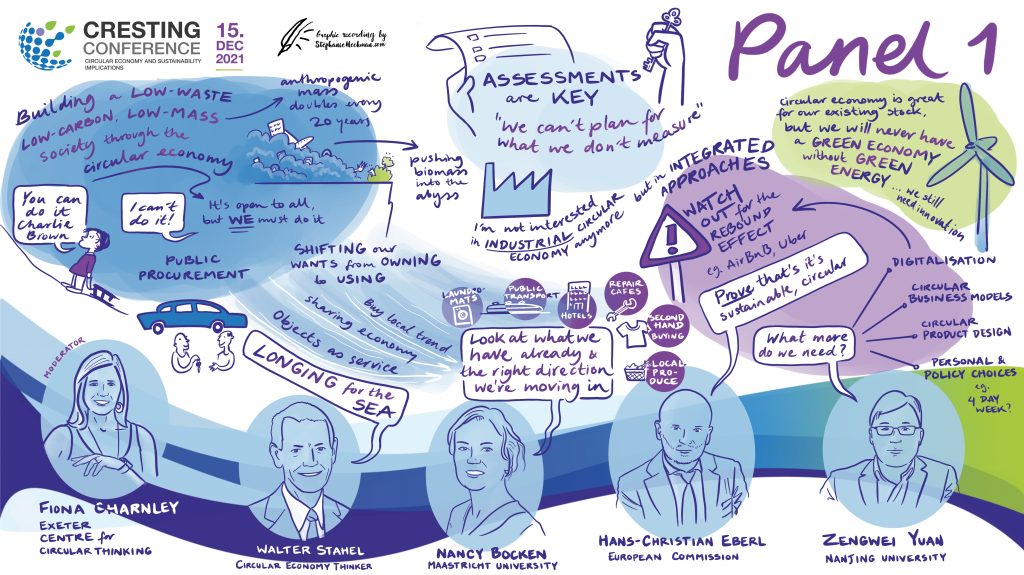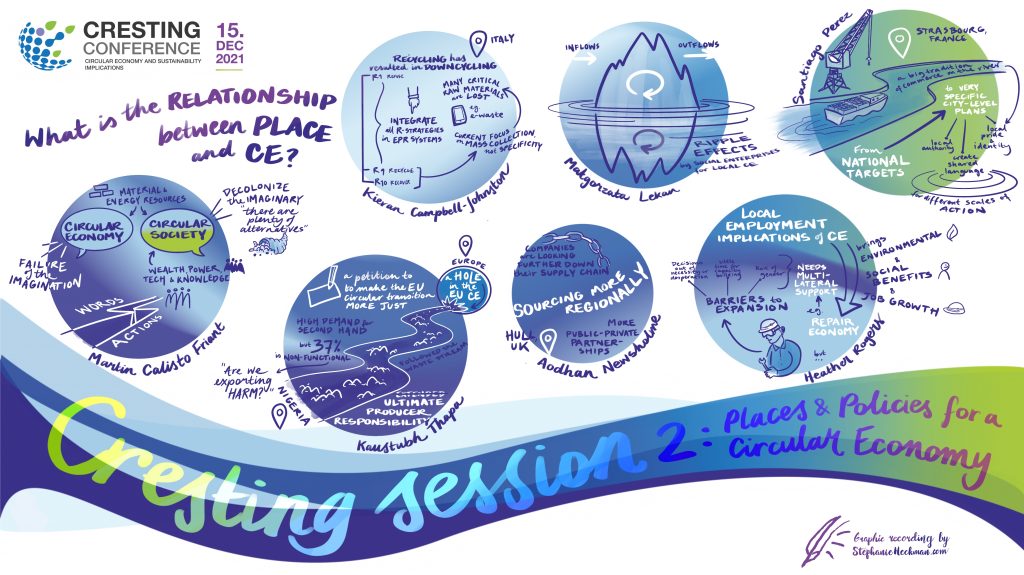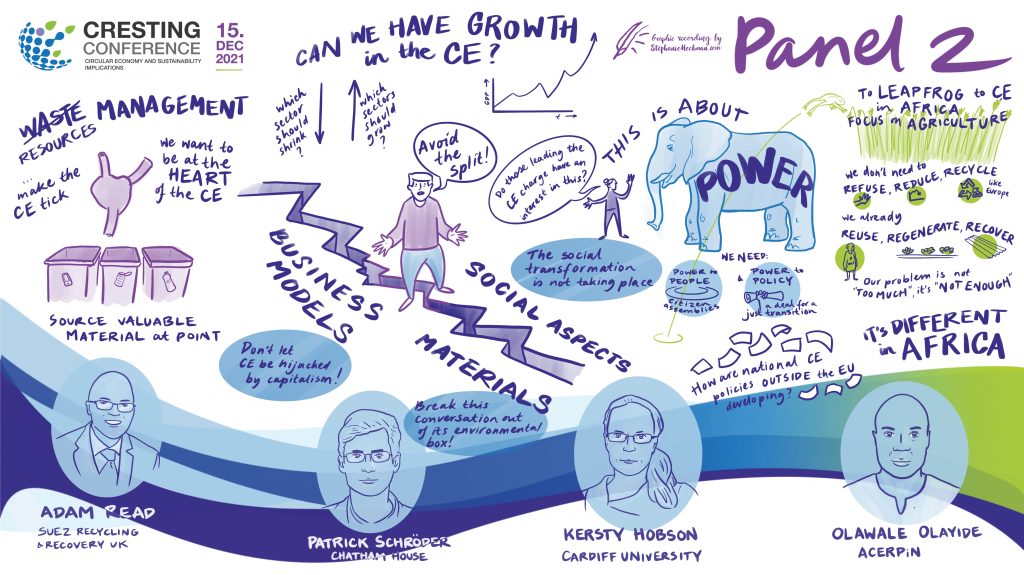CRESTING Conference: Day 1
The CRESTING Conference took place on the 15th December 2021. The event presented and debated the findings of CRESTING, examining the implications of a circular economy with the aim of guiding progress towards a sustainable future. You can watch and hear all of the the conference sessions on the CRESTING YouTube Channel or follow the links in the specific session below.
The day was split into four sessions:
CRESTING Video Contest
As part of the Conference, CRESTING Early Stage Researcher, Malgorzata Lekan organised a video contest. More than 45 video entries were submitted to the Short International Film Contest and calling for #circulareconomy themed and attention grabbing videos. We have awarded three winners with gift vouchers. The first winner was Botir Abdurakhmanov from Uzbekistan who made a video titled ‘FREND’. Galina Kazarnovkaya from Russia won the second prize for her video Nocturne №1. The third winner is Seah Hong Woo (‘A person who loves the world’) from Malaysia – see his creative video by clicking here. We would like to thank all the participants who submitted their entries, and which can be found at Cresting ITN – YouTube Channel. Enjoy watching!
CRESTING Conference: Day 2
On the 16th December 2021 we hosted a day of workshops for the CRESTING team, partners and invited guests. An outline of each of the workshops and a digital recording of the discussion is provided below.
Workshop 1: What is a Circular Economy?
Purpose of the session: We explored different stakeholder perspectives on a Circular Economy through a facilitated interactive session, identifying common ground values and motivations among diverse actors.
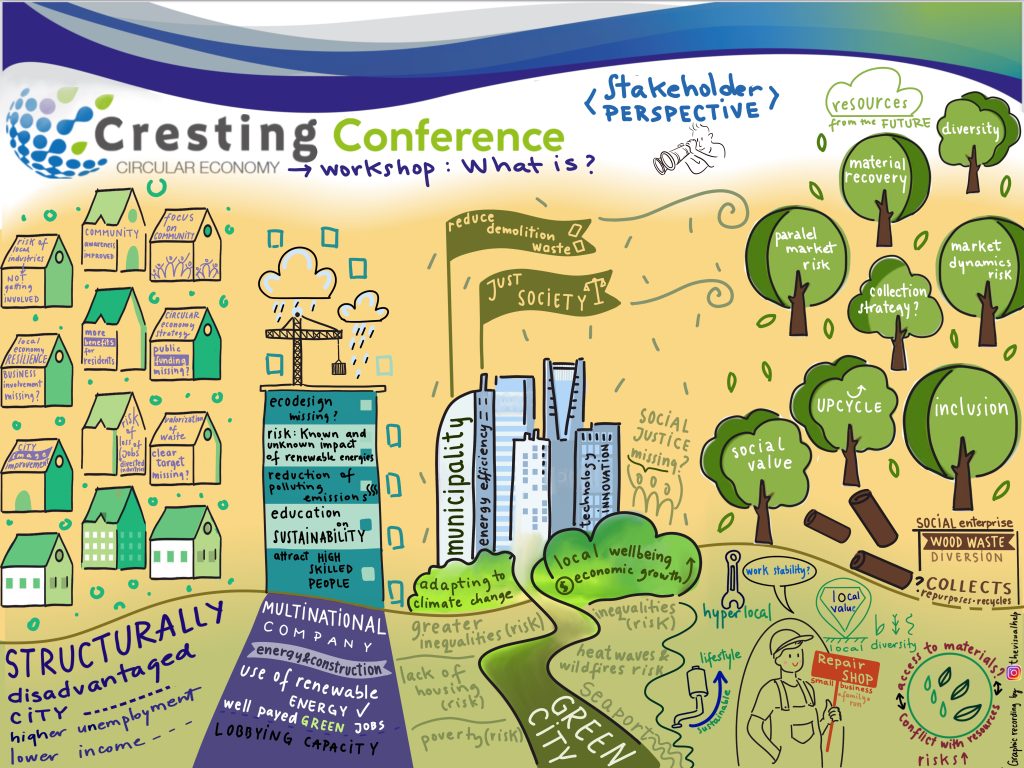
Workshop 2: How do we achieve a socially just Circular Economy?
Purpose of the session: With the help of participatory exercises we collectively discussed what a socially just circular economy looks like at different societal scales (from companies and communities to international organisations). We also thought about key actions and policies which are needed to create a socially just and sustainable circular future.
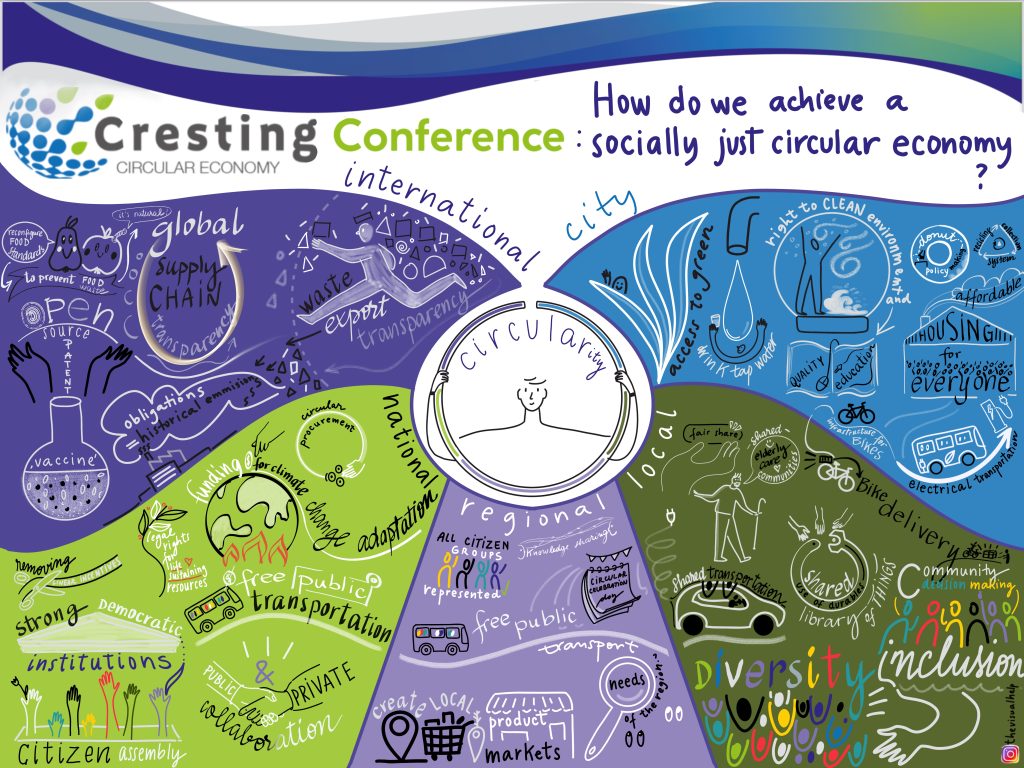
Workshop 3: Assessment-how and what to measure for a sustainable Circular Economy?
Purpose of the session: This facilitated workshop explored how adopting a circular business model impacts a company’s sustainability assessment practices. In particular, we looked at what value the results of different sustainability and circularity assessments provide companies, especially when taking their decisions on corporate sustainability issues.
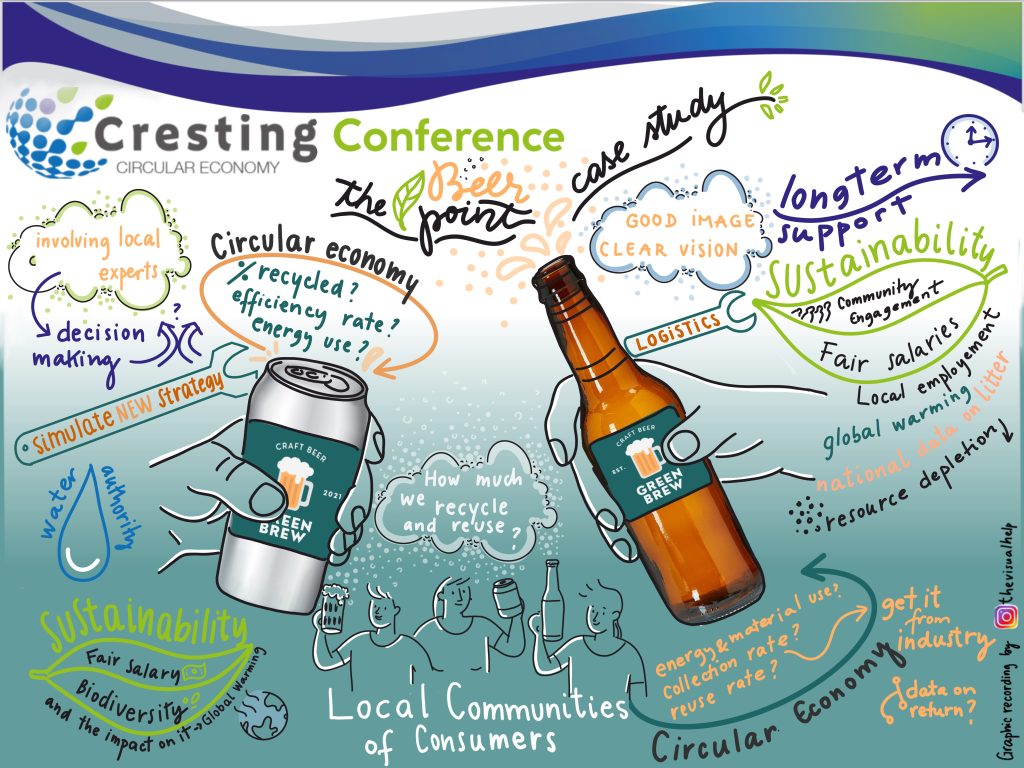
Workshop 4: How can we design and implement effective Circular Economy policies?
Purpose of the session: To develop implementation roadmaps for three circular economy policies to be applied at the international, national and local levels addressing consumer electronics, automotive and food. The goal was to come up with a timeline of actions allocated to most relevant stakeholder groups. By doing this collaboratively, we reflected on how factors like geographical scale, industrial sector and the complexity of our systems affect the implementation of Circular Economy policies.



